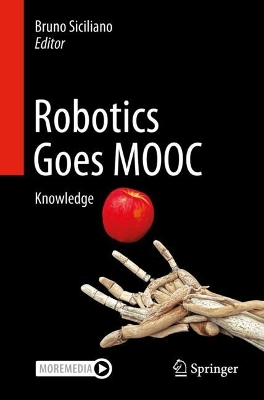Teaching and Learning in Maths Classrooms
 -15%
portes grátis
-15%
portes grátis
Teaching and Learning in Maths Classrooms
Emerging Themes in Affect-related Research: Teachers' Beliefs, Students' Engagement and Social Interaction
Andra, Chiara; Brunetto, Domenico; Liljedahl, Peter; Levenson, Esther
Springer International Publishing AG
05/2018
292
Mole
Inglês
9783319841106
15 a 20 dias
486
Descrição não disponível.
1 Teaching and learning in math classrooms.- 2 Foreword.- 3 Introduction.- Part I Classroom practices: explanation, problem-solving, patterning, decision-making, drawings and games - 4 Prospective primary teachers' beliefs regarding the roles of explanations in the classroom.- 5 Defining, drawing, and continuing repeating patterns: Preschool teachers' self-efficacy and knowledge. - 6 Primary school students' images of problem solving in mathematics.- 7 Secondary school mathematics teachers' conceptions on data-based decision-making: Insights from four Japanese cases.- 8 Teachers' activities during a mathematics lesson as seen in third graders' drawings- 9 Serious frivolity: exploring play in UK secondary mathematics classrooms.- Part II Teachers' beliefs, changing beliefs and the role of the environment.- 10 In-service math teachers' autobiographical narratives: the role of metaphors.- 11 A contribution to the relation between teachers' professed and enacted beliefs.- 12 Raising attainment: What might we learn from teachers' beliefs about their best and worst mathematics students?.- 13 Numeracy task design: A case of changing mathematics teaching practice.- 14 Math lessons: from flipped to amalgamated, from teacher- to learner-centered.- 15 Emotional expressions as a window to processes of change in a mathematics classroom's culture.- 16 Mathematics teachers' conceptions of the classroom environment.- Part III Understanding the undercurrents: tensions, inconsistencies and the social turn.- 17 Teacher tensions: the case of Naomi.- 18 Towards inconsistencies of parents' beliefs about teaching and learning mathematics.- 19 Evoking the feeling of uncertainty for enhancing conceptual knowledge.- 20 Criteria for identifying students as exceptional in a mathematical camp for 'gifted' students.- 21 Identity and rationality in classroom discussion: developing and testing an analytical toolkit.- 22 Developing an analyzing tool for dynamic mathematics-related student interaction regarding affect, cognition and participation.- Part IV Emerging themes in affect-related research: engagement, fear, perfectionism ...and assessment.- 23 Motivating desires for classroom engagement in the learning of mathematics.- 24 What are students afraid of when they say they are afraid of mathematics?.- 25 What is perfectionism in mathematical task solving?.- 26 Gender differences concerning pupils' beliefs on teaching methods and mathematical worldviews at lower secondary schools.- 27 "Every time I fell down (made a mistake), I could get up (correct)": affective factors in formative assessment practices with classroom connected technologies.- 28 Teachers' affect towards the external standardised assessment of students' mathematical competencies.- 29 Conclusion.
Este título pertence ao(s) assunto(s) indicados(s). Para ver outros títulos clique no assunto desejado.
Math education;Emotions, motivation, desideres, beliefs;Social interaction;Assessment;Social interaction
1 Teaching and learning in math classrooms.- 2 Foreword.- 3 Introduction.- Part I Classroom practices: explanation, problem-solving, patterning, decision-making, drawings and games - 4 Prospective primary teachers' beliefs regarding the roles of explanations in the classroom.- 5 Defining, drawing, and continuing repeating patterns: Preschool teachers' self-efficacy and knowledge. - 6 Primary school students' images of problem solving in mathematics.- 7 Secondary school mathematics teachers' conceptions on data-based decision-making: Insights from four Japanese cases.- 8 Teachers' activities during a mathematics lesson as seen in third graders' drawings- 9 Serious frivolity: exploring play in UK secondary mathematics classrooms.- Part II Teachers' beliefs, changing beliefs and the role of the environment.- 10 In-service math teachers' autobiographical narratives: the role of metaphors.- 11 A contribution to the relation between teachers' professed and enacted beliefs.- 12 Raising attainment: What might we learn from teachers' beliefs about their best and worst mathematics students?.- 13 Numeracy task design: A case of changing mathematics teaching practice.- 14 Math lessons: from flipped to amalgamated, from teacher- to learner-centered.- 15 Emotional expressions as a window to processes of change in a mathematics classroom's culture.- 16 Mathematics teachers' conceptions of the classroom environment.- Part III Understanding the undercurrents: tensions, inconsistencies and the social turn.- 17 Teacher tensions: the case of Naomi.- 18 Towards inconsistencies of parents' beliefs about teaching and learning mathematics.- 19 Evoking the feeling of uncertainty for enhancing conceptual knowledge.- 20 Criteria for identifying students as exceptional in a mathematical camp for 'gifted' students.- 21 Identity and rationality in classroom discussion: developing and testing an analytical toolkit.- 22 Developing an analyzing tool for dynamic mathematics-related student interaction regarding affect, cognition and participation.- Part IV Emerging themes in affect-related research: engagement, fear, perfectionism ...and assessment.- 23 Motivating desires for classroom engagement in the learning of mathematics.- 24 What are students afraid of when they say they are afraid of mathematics?.- 25 What is perfectionism in mathematical task solving?.- 26 Gender differences concerning pupils' beliefs on teaching methods and mathematical worldviews at lower secondary schools.- 27 "Every time I fell down (made a mistake), I could get up (correct)": affective factors in formative assessment practices with classroom connected technologies.- 28 Teachers' affect towards the external standardised assessment of students' mathematical competencies.- 29 Conclusion.
Este título pertence ao(s) assunto(s) indicados(s). Para ver outros títulos clique no assunto desejado.







